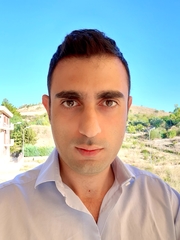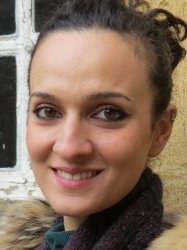Studying at the University of Verona
Here you can find information on the organisational aspects of the Programme, lecture timetables, learning activities and useful contact details for your time at the University, from enrolment to graduation.
Academic calendar
The academic calendar shows the deadlines and scheduled events that are relevant to students, teaching and technical-administrative staff of the University. Public holidays and University closures are also indicated. The academic year normally begins on 1 October each year and ends on 30 September of the following year.
Course calendar
The Academic Calendar sets out the degree programme lecture and exam timetables, as well as the relevant university closure dates..
| Period | From | To |
|---|---|---|
| Primo semestre (lauree) | Sep 25, 2023 | Jan 19, 2024 |
| Periodo generico | Oct 1, 2023 | May 31, 2024 |
| Secondo semestre (lauree) | Feb 26, 2024 | May 31, 2024 |
| Session | From | To |
|---|---|---|
| Sessione invernale (lauree) | Jan 22, 2024 | Feb 23, 2024 |
| Sessione estiva (lauree) | Jun 3, 2024 | Jul 12, 2024 |
| Sessione autunnale (lauree) | Aug 26, 2024 | Sep 20, 2024 |
| Session | From | To |
|---|---|---|
| Sessione autunnale a.a. 2022/2023 | Dec 5, 2023 | Dec 7, 2023 |
| Sessione invernale a.a. 2022/2023 | Apr 3, 2024 | Apr 5, 2024 |
| Sessione estiva a.a. 2023/2024 | Sep 4, 2024 | Sep 6, 2024 |
Exam calendar
Exam dates and rounds are managed by the relevant Economics Teaching and Student Services Unit.
To view all the exam sessions available, please use the Exam dashboard on ESSE3.
If you forgot your login details or have problems logging in, please contact the relevant IT HelpDesk, or check the login details recovery web page.
Should you have any doubts or questions, please check the Enrollment FAQs
Academic staff
 silvano.corbella@univr.it
silvano.corbella@univr.it
 simona.fiore@univr.it
simona.fiore@univr.it
 tamara.fioroni@univr.it
tamara.fioroni@univr.it
 cecilia.mancini@univr.it
cecilia.mancini@univr.it
 martina.menon@univr.it
martina.menon@univr.it
 cosimo.munari@univr.it
cosimo.munari@univr.it
 alex.sclip@univr.it
alex.sclip@univr.it
Study Plan
The Study Plan includes all modules, teaching and learning activities that each student will need to undertake during their time at the University.
Please select your Study Plan based on your enrollment year.
1° Year
| Modules | Credits | TAF | SSD |
|---|
2° Year It will be activated in the A.Y. 2024/2025
| Modules | Credits | TAF | SSD |
|---|
3° Year It will be activated in the A.Y. 2025/2026
| Modules | Credits | TAF | SSD |
|---|
2 modules among the following| Modules | Credits | TAF | SSD |
|---|
| Modules | Credits | TAF | SSD |
|---|
| Modules | Credits | TAF | SSD |
|---|
2 modules among the following| Modules | Credits | TAF | SSD |
|---|
Legend | Type of training activity (TTA)
TAF (Type of Educational Activity) All courses and activities are classified into different types of educational activities, indicated by a letter.
Type D and Type F activities
Nei piani didattici di ciascun Corso di studio è previsto l’obbligo di conseguire un certo numero di crediti formativi mediante attività a scelta (chiamate anche "di tipologia D e F").
Oltre che in insegnamenti previsti nei piani didattici di altri corsi di studio e in certificazioni linguistiche o informatiche secondo quanto specificato nei regolamenti di ciascun corso, tali attività possono consistere anche in iniziative extracurriculari di contenuto vario, quali ad esempio la partecipazione a un seminario o a un ciclo di seminari, la frequenza di laboratori didattici, lo svolgimento di project work, stage aggiuntivo, eccetera.
Come per ogni altra attività a scelta, è necessario che anche queste non costituiscano un duplicato di conoscenze e competenze già acquisite dallo studente.
Quelle elencate in questa pagina sono le iniziative extracurriculari che sono state approvate dalla Commissione didattica e quindi consentono a chi vi partecipa l'acquisizione dei CFU specificati, alle condizioni riportate nelle pagine di dettaglio di ciascuna iniziativa.
Si ricorda in proposito che:
- tutte queste iniziative richiedono, per l'acquisizione dei relativi CFU, il superamento di una prova di verifica delle competenze acquisite, secondo le indicazioni contenute nella sezione "Modalità d'esame" della singola attività;
- lo studente è tenuto a inserire nel proprio piano degli studi l'attività prescelta e a iscriversi all'appello appositamente creato per la verbalizzazione, la cui data viene stabilita dal docente di riferimento e pubblicata nella sezione "Modalità d'esame" della singola attività.
Scopri i percorsi formativi promossi dal Teaching and learning centre dell'Ateneo, destinati agli studenti iscritti ai corsi di laurea, volti alla promozione delle competenze trasversali: https://talc.univr.it/it/competenze-trasversali
CONTAMINATION LAB
Il Contamination Lab Verona (CLab Verona) è un percorso esperienziale con moduli dedicati all'innovazione e alla cultura d'impresa che offre la possibilità di lavorare in team con studenti e studentesse di tutti i corsi di studio per risolvere sfide lanciate da aziende ed enti. Il percorso permette di ricevere 6 CFU in ambito D o F. Scopri le sfide: https://www.univr.it/clabverona
ATTENZIONE: Per essere ammessi a sostenere una qualsiasi attività didattica, incluse quelle a scelta, è necessario essere iscritti all'anno di corso in cui essa viene offerta. Si raccomanda, pertanto, ai laureandi delle sessioni di dicembre e aprile di NON svolgere attività extracurriculari del nuovo anno accademico, cui loro non risultano iscritti, essendo tali sessioni di laurea con validità riferita all'anno accademico precedente. Quindi, per attività svolte in un anno accademico cui non si è iscritti, non si potrà dar luogo a riconoscimento di CFU.
| years | Modules | TAF | Teacher |
|---|---|---|---|
| 1° 2° 3° | Thematic cycle of conferences on Women's "leadership": data, reflections and experiences | D |
Martina Menon
(Coordinator)
|
| 1° 2° 3° | English for Business and Economics - Bachelor's Degrees | D |
Marco Minozzo
(Coordinator)
|
| 1° 2° 3° | Educational laboratory on credit securitization | D |
Michele De Mari
(Coordinator)
|
| years | Modules | TAF | Teacher |
|---|---|---|---|
| 1° 2° 3° | Data Analysis Laboratory with R (Verona) | D |
Marco Minozzo
(Coordinator)
|
| 1° 2° 3° | Data Visualization Laboratory | D |
Marco Minozzo
(Coordinator)
|
| 1° 2° 3° | Python Laboratory | D |
Marco Minozzo
(Coordinator)
|
| 1° 2° 3° | Data Science Laboratory with SAP | D |
Marco Minozzo
(Coordinator)
|
| 1° 2° 3° | Advanced Excel Laboratory (Verona) | D |
Marco Minozzo
(Coordinator)
|
| 1° 2° 3° | Excel Laboratory (Verona) | D |
Marco Minozzo
(Coordinator)
|
| 1° 2° 3° | Plan your future | D |
Paolo Roffia
(Coordinator)
|
| 1° 2° 3° | Programming in Matlab | D |
Marco Minozzo
(Coordinator)
|
| 1° 2° 3° | Programming in SAS | D |
Marco Minozzo
(Coordinator)
|
| years | Modules | TAF | Teacher |
|---|---|---|---|
| 1° 2° | Digital experiments in economics - 2023/2024 | D |
Claudio Zoli
(Coordinator)
|
| 1° 2° | Topics in economics and ethics of artificial intelligence- 2023/2024 | D |
Claudio Zoli
(Coordinator)
|
Public finance (2024/2025)
Teaching code
4S00311
Teacher
Not yet assigned
Credits
9
Language
Italian
Scientific Disciplinary Sector (SSD)
SECS-P/03 - PUBLIC ECONOMICS
Period
Secondo semestre L dal Feb 17, 2025 al May 30, 2025.
Courses Single
Authorized
Learning objectives
The aim of the course is to provide students with rigorous economic tools for the modern analysis of public policies. We will review the justifications for the economic role of the state, focusing on the role of public expenditure, taxation and regulatory policies. We will supplement the analysis of theoretical models with evidence from Italian public policies. We will focus on the underlying motivations behind public interventions and on the effect of public policies in terms of efficiency and equity.
At completion of the course students should be able to:
- Understand and evaluate critically the justifications for the public intervention in the economy.
- Analyse and assess rigorously public policies on the basis of economic theory.
- Master the economic analysis of the main Italian taxation tools.
Career prospects
Module/Programme news
News for students
There you will find information, resources and services useful during your time at the University (Student’s exam record, your study plan on ESSE3, Distance Learning courses, university email account, office forms, administrative procedures, etc.). You can log into MyUnivr with your GIA login details: only in this way will you be able to receive notification of all the notices from your teachers and your secretariat via email and soon also via the Univr app.

 045 8028525
045 8028525





















